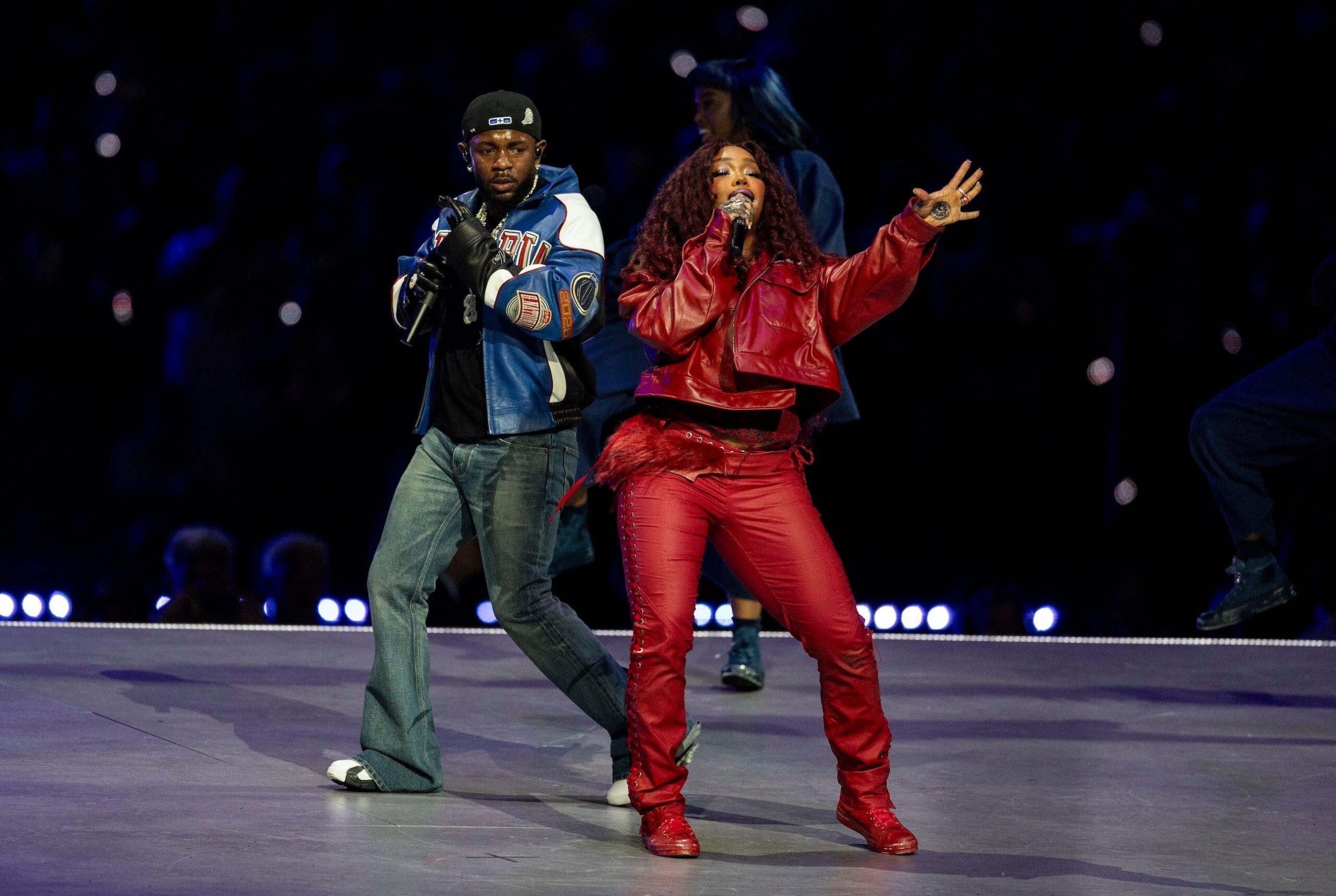
When Mariah Carey soulfully crooned “It’s a special occasion/ Mimi’s emancipation,” on “It’s Like That,” the opening track of her 10th album, The Emancipation of Mimi, it was more than catchy lyrics. It was a declaration of a new era, a new sound and a new Mariah.
Fifteen years into her career at that point, Carey had already solidified herself as one of the best-selling artists of all time. But in the early 2000s, the public’s perception of the superstar began to shift after several years of underperforming releases. The media amplified her alleged personal setbacks and forecasted that her career was headed south — but those tides quickly changed course when she released The Emancipation of Mimi.
Released in April 2005, Emancipation wasn’t just a return to form, it was a statement. Carey was in full command of her artistry, reminding the world that she was always the pen, the voice and the vision. The album tapped into a sound that felt both nostalgic and new, an R&B-pop blend laced with hip-hop flavor, gospel undertones and instantly memorable melodies. And with Carey’s inimitable vocal prowess at the helm, Emancipation marked a woman reclaiming her power in real-time.
As a result, The Emancipation of Mimi didn’t just become Carey’s biggest album in nearly a decade — it was the best-selling album in the U.S. that year. Along with becoming the singer’s fifth No. 1 album on the Billboard 200, Emancipation earned her three wins (and 10 nominations) at the 2006 GRAMMYs, and delivered chart-topping hits like “We Belong Together” and “Don’t Forget About Us.”
Part of what made the project so rich was the balance between the familiar and the fresh. Carey reunited with longtime collaborators and welcomed new voices, and the result was a masterclass in collaboration and control. Ultimately, as the album’s fitting title indicates, The Emancipation of Mimi offered vindication for Carey and every fan who knew she still had it.
In honor of the LP’s 20th anniversary, GRAMMY.com sat down with three of Carey’s Emancipation collaborators, Jermaine Dupri, Bryan-Michael Cox and Johntá Austin. Below, they reflect on the creation and legacy of the album — one that brought Mariah home to herself and reminded the world of her greatness.
The Energy In The Studio With Mariah
Jermaine Dupri: It was fast. It was a 2-week span of working.
This was the first time I tried a bunch of different things with Mariah. It’s very tiptoe-ish in the studio. You know, she’s Mariah. She’s the diva that she is, so I know I can’t just spring things on her and bring people around that she don’t know. You want to make sure she’s always comfortable.
With these sessions, I opened it up to Johntá and other writer[s] to come to the studio, just so we have a bunch of fresh little ideas. I didn’t know if she was going to get mad, or she was going to be like, “Jermaine, why are you asking me to have [new] writers?”
I feel like we just created a vibe in those 2 weeks. That was pretty amazing.
Bryan-Michael Cox: It was festive. I think that’s the best way to describe it. We were in lockstep with Mariah. Mariah and Jermaine’s relationship trends back to the early ’90s, so they had this closeness. I met Mariah like, ’98, ’99. We were doing Rainbow. [Then] we did [2002’s] Charmbracelet.
We got word that she was coming in, like, maybe later that week. She’s super spontaneous — you might get a call at 2 o’clock in the morning, like, “Hey, Mariah’s fresh off the plane, let’s go to the studio.” Then you would, and the studio is redecorated; you don’t even know who did all this.
[There] was no pressure, it was relaxed. And, you know, me and Johntá, we’ve been close since I was 19. He was 16. So that’s a natural chemistry. And then, all 4 of us together, and then you bring Manuel [Seal] still in the mix, who’s been with Jermaine forever and ever — it was festive, man.
Johntá Austin: She is an amazing songwriter and collaborator. We had a lot of fun with Mariah in the studio. She works late. Mariah likes to come in, you know, 1, 2 o’clock in the morning. So that was a bit of an adjustment, because I’m more of a day person.
Because she had worked with Jermaine and B. Cox prior, she welcomed me with open arms, and I kind of just fell right into the mix. But it was fun. We laugh and joke a lot while we’re writing. There are funny lines that never make it into the songs, but they get us to the lines that actually do so. Now Mariah is one of my favorite people to write songs with.
The Creation Of The Big Hits
Dupri: I wasn’t really abreast of what they were trying to do at the time. I just was thinking I was making, you know, records for Mariah. So I was trying to do something that I thought she didn’t have. The [“Just an] Illusion” sample [of Imagination] with “Get Your Number”… she’s known for singing over samples, but I didn’t know if she had gone in that space. That was the idea I had for that song.
I didn’t have plans of being on the song. I was playing with the loop and messing with the track before she got to Atlanta. I put that hook on there, and when she got to the studio, she was f—ing with it. She liked it, but she was like, “I’m not gonna sing it, you gotta sing it!” And I’m like, “What?”
“Shake It Off” was the second record that we did, and I wanted Mariah to have that bounce and be in that space. They took the records back to New York, and L.A. [Reid] told her that it sounded like we had got a great start, but we didn’t knock it out the park yet.
At the time, I didn’t know that “Always Be My Baby” was L.A. Reid’s favorite Mariah Carey record. [When] told me that was his favorite song, [he asked if] I think that I could beat “Always Be My Baby.” And I said, “No, I don’t.” I thought that “Always Be My Baby” was a special record, and I don’t think I could beat any of my records when people ask me those questions.
But I took on this challenge to try to do a better song than “Always Be My Baby,” or come up with something that gave you that same element. So he sent her back to Atlanta the next week, and the first songs we did were “We Belong Together” and “It’s Like That.”
I remember doing “We Belong Together,” and her assistant coming in there saying, “The plane is leaving in an hour.” We had half the song, and we knew we had something, but we hadn’t finished it yet, and she wanted to leave with a finished product. I was tired. Johntá was tired. Everybody was damn near asleep.
I think 30 minutes before she was about to go, we had this gap in the song at the end of the song. [Sings] “I’m feelin’ all out of my element/ Throwin’ things, cryin’/ Tryna figure out where the hell I went wrong,” that part of the song, I just heard that in my head. I said it to her, and she was like, “Go say it!” And that little line right there, every time I hear the song, that’s what I think about — how fast that line came to me, and she just like, put it in there.
Austin: L.A. Reid later told me, “Man, I knew that we had something [with ‘We Belong Together’] because when she landed on the plane at like 6 in the morning, she called me and was like, ‘I want to come by and play you this.'” And he said she played [him my] demo and he was like, “Okay, we got it now.” That kind of stands out that L.A. Reid had the vision to feel like Mariah and Jermaine and myself, that we had one more in us.
Cox: “Don’t Forget About Us” was interesting, how that happened. There was a brief moment where I was doing my own thing, and Jermaine was doing his own thing, and we hadn’t worked together in a minute. And I got a call from Mariah. Mind you, Emancipation is out — so at this point, the only songs I have on Emancipation is “Shake It Off” and “Get Your Number.” I’ll never forget, I was at Record Plant [Recording Studios] in L.A., and Mariah called my phone. She was like, “I wanna add a couple of new songs to a repackage for Emancipation, and I really want you and Jermaine to get back in the studio and work together.”
We went to Atlanta, and I hadn’t seen JD, it had been months. We get back in the studio, and literally the first song we make is “Don’t Forget About Us.” So it’s like, the magic is the magic, no matter what the circumstance is, between me, him, her, and Johntá. It was another No. 1 record for her.
The Blockbuster Success
Austin: It’s hard to see something [becoming] that big. I could hear “We Belong Together” and say, “This is a No. 1 record,” but No. 1 for 15 weeks? And the album is near diamond. I would be lying to you if I said I saw that coming.
I feel like we just did our best in the studio to make the best sounding records. And I’m happy with the work ethic of what we did, and so surprised at the level of response and success that it has had over the years. [I’m] humbled by it, that the world saw it the way that we saw it.
Dupri: I [would] hear people say, “Jermaine, you brought Mariah back.” I don’t even take credit for that because I wasn’t subscribed to [the idea that] Mariah had left.
I think [when you’re] making albums, you can’t subscribe to where the artist is in their life [and career]. You should just go in the studio and make music based on the love that you have for the artists, and I think that’s what it was like. I wasn’t in there saying, “Oh, I got to bring Mariah back.”
Cox: I had no doubt. I was like, Oh, this is gonna be a huge album. And I’m coming off of Usher’s Confessions and a string of hits. So the temperature felt like it was going to be big.
When I saw the first week numbers and I saw how “It’s Like That” was going — I was in New York a lot during that period, and “It’s Like That” was popping in New York. So I was like, Yo, this album’s gonna blow. And then “We Belong Together” comes out and blows up, then “Shake It Off.” The reason why “Shake It Off” didn’t go No. 1 is because “We Belong Together” kept “Shake It Off” from going No. 1. She was beating herself, which is why I now know she wanted to come back and do the [deluxe version]. “Don’t Forget About Us” was her purposely saying, “We’re gonna go get that other No. 1 record.”
It was a beautiful time, man. It was a great time in the music business. It was just a different time. We was making a lot of money. It was fantastic.
The Impact On The Industry
Cox: She’s a pop star first to people, but this album gave us this beautiful R&B foundation. And she was able to dance on top of that and take our music to the pop charts. She’s able to do those things without compromising who she is. It makes her extremely special.
Austin: What “We Belong Together” [specifically] was able to do was bring the big ballad into kind of an urban street vibe. It’s a big ballad, but it’s still a jam. Whereas, the previous kind of big ballads were the Whitneys, the Celine Dions. Obviously, Mariah had a million of those huge ballads, but I think we were able to combine a huge song with something that [wasn’t] super slow.
Dupri: I believe [Emancipation] became the leader in making pop artists understand that they can use a little harder sound in the records that they make. I started hearing other records that had these type of elements in it.
Before “We Belong Together,” I think pop thought that pop should sound pop. “We Belong Together,” I mean, it sounds pop to me now, but when we did it, I thought it was closer to a “Lovers and Friends” type of record, which was super R&B. If it would have been [done by] anybody else, it probably would have been a super R&B song. But Mariah’s voice, and the way she sings, and what she does with her melodies, she takes it to another space.
I definitely believe [the album] became the leader of music in general at that point. [People had this idea that an] R&B producer and [a] pop singer shouldn’t be working together. Because of this [album], they started really paying attention to that as an element that [artists] wanted and needed in their repertoire.
Ariana Grande, she’s a big fan of Mariah. I heard songs that she did after this that sounded “We Belong Together”-inspired. The Bryson Tiller record [“Dont'”], he took the sample from “Shake It Off.” I don’t think that [had] ever happened in her career, where a new artist [took] her product from the old days and put it in a song. That’s in itself as an example of how much this [album] touched the younger generation.
The Legacy 20 Years On
Austin: It was at a time where it was, I don’t like to say “comeback” album, because artists like Mariah never go away. But I remember my music publisher wanted me to work with another artist, who was a little more on fire than Mariah was at that time. But I was like, “No, I’m working on Mariah — like, this is Mariah Carey, that should be the end of the discussion.”
The Emancipation of Mimi was just a reminder that when great artists have great songs, there’s nothing that they can’t do. It always cuts through.
Dupri: I don’t even know the words for it. My Mariah connection, it’s heavenly. It’s probably the best relationship and working connection that I have.
I’ve been happy to see the numbers and all of that, but this is one of my most proud moments — just because I never thought that I could even lend a hand to Mariah. When I first started working with [her] she was already at, like, 50 million records. I didn’t believe that I could actually do too much to that career to make a difference.
Cox: Mariah Carey’s first album, Vision of Love, came out in 1990. Usually people, you know, you got a good decade, and it’s a wrap. Mariah was 15 years into her career when she made this album. People think it’s a masterpiece, right? But what’s amazing is that she had, like, three masterpieces before that — her first album, Music Box, Butterfly.
Her realm was already crazy by the time we got to Emancipation. I want you to understand the heaviness of what that is, and her impact as an artist, as a creative, as a songwriter, and just on culture in general. Because now, here we are, 2025, and we’re still talking about it. She’s still selling out shows. The Christmas thing is going crazy. We made some new songs, hopefully you guys hear some songs this year. She’s one of them eternal figures that’s here to stay.
The Latest Pop Music News & Releases
This post was originally published on this site be sure to check out more of their content







